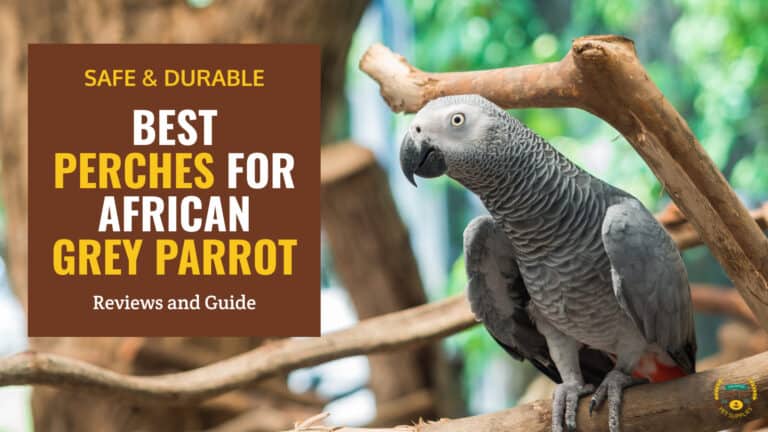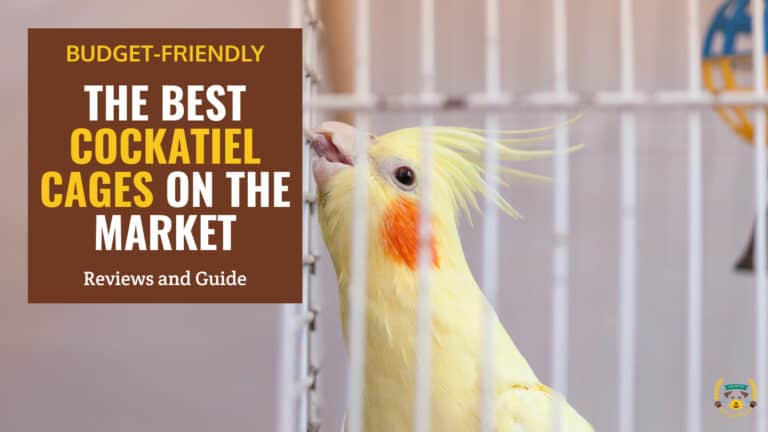Which Is Better Male Or Female African Grey Parrot?
Last updated: March 26, 2024
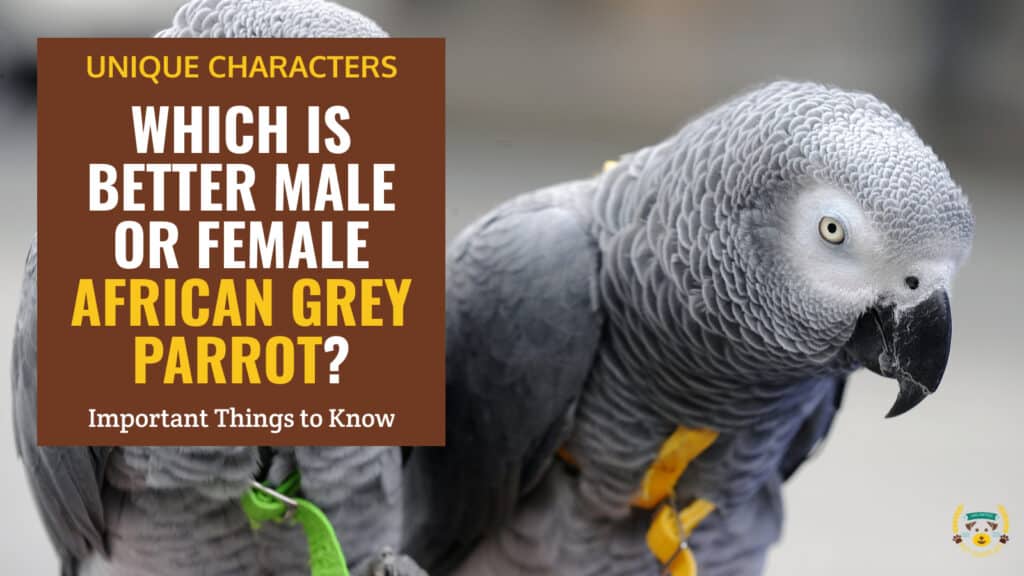
Summary
- African Greys are intelligent, social parrots native to Africa known for their talking ability.
- Males are generally larger in size. They tend to be more outgoing, social, vocal and better talkers.
- Females are usually smaller and more reserved. However, they still mimic well and show strong maternal behaviors.
- Male greys can be territorial and aggressive during breeding season. Extra supervision helps.
- Female greys are in higher demand for breeding, making them more expensive than males.
- Egg binding, chronic laying, and calcium deficiency are potential health issues for females.
- Personal preferences, lifestyle, and dedication to proper care should drive the gender choice.
- With proper care and attention, African Greys of either gender make wonderful lifelong pets.
The question "Which is better, male or female African Grey Parrot?" is a common one among potential owners of African Greys. However, the answer isn't as straightforward as one might think. The choice between a male and female African Grey Parrot goes beyond mere preference. It involves a careful consideration of various factors such as the bird's temperament, physical characteristics, health considerations, and even the bird's compatibility with your lifestyle.
In this article, we will explore the unique characteristics of both male and female African Grey Parrots, from their physical traits to their behavioral tendencies. We will also compare these traits to help you make an informed decision. Furthermore, we will provide valuable tips on caring for these intelligent birds, regardless of their gender.
Understanding African Grey Parrots
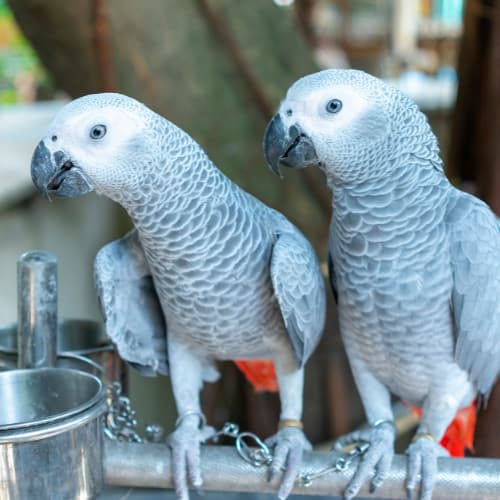
African Grey Parrots, known scientifically as Psittacus erithacus, are native to the dense forests of Central Africa and the Ivory Coast. These birds have been a part of the pet trade for centuries, with their intelligence and talking ability making them a favorite among bird enthusiasts worldwide.
Types of African Grey Parrots
There are two main types of African Grey Parrots: the Congo African Grey and the Timneh African Grey. The Congo African Grey is the larger of the two, recognized by its bright red tail and light grey feathers. On the other hand, the Timneh African Grey is slightly smaller, with darker feathers and a maroon tail.
General Characteristics of African Grey Parrots
African Grey Parrots are medium-sized and known for their intelligence and remarkable mimicry skills. They have a strong ability to replicate human speech, making them one of the most talkative bird species. Their feather color ranges from light to dark grey, with a striking red or maroon tail.
These parrots are also known for their longevity, with a lifespan that can extend up to 50 years or more in captivity with proper care. They require a balanced diet, a spacious cage for movement, and plenty of mental stimulation to thrive.
African Greys are social birds, requiring regular interaction with their owners. They can form strong bonds with their human companions, making them excellent pets for those who can provide the necessary time and attention.
However, these parrots are also known for their sensitivity. Changes in their environment or routine can lead to stress, which can manifest in behaviors such as feather plucking. Therefore, maintaining a stable environment is crucial for their well-being.
Comparing Male and Female African Grey Parrots
Let's quickly compare the physical and mental characteristics of male and female African Greys and see their similarities and differences.
Physical Traits
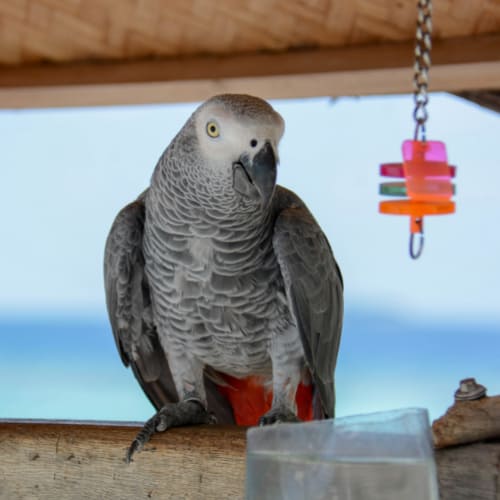
When comparing the physical traits of male and female African Grey Parrots, the most noticeable difference is their size. Males are generally larger and heavier than females. However, both genders share the same striking grey feathers and vibrant tail feathers, which can range from bright red in Congo African Greys to maroon in Timneh African Greys.
Behavioral Traits
In terms of behavior, male African Grey Parrots are often more outgoing and talkative, making full use of their impressive talking ability. They are also known to form strong bonds with their owners, seeking attention and interaction more actively.
On the other hand, females are typically more reserved and may not be as talkative. However, they still possess the remarkable mimicry skills that the species is known for. Females also show a strong maternal instinct, especially during the breeding season, which can lead to nesting behaviors.
Health Considerations
Both male and female African Grey Parrots require regular check-ups with an avian vet to ensure their health. They are prone to similar health issues, such as feather plucking, if they do not receive enough attention and stimulation. Therefore, regardless of gender, providing a stimulating environment with plenty of toys and activities is crucial for their well-being.
In terms of diet, both genders require a balanced mix of fruits, vegetables, and bird-safe seeds. They also need access to a clean water source at all times. Regular cage cleaning is also essential to prevent the spread of diseases.
Pricing Considerations
In general, female African Grey parrots tend to be more expensive than males. This is because females are sought after for their ability to produce eggs and offspring, whereas males do not have this reproductive capability.
Breeders often charge a premium for female greys, especially proven, mature breeders that have a history of successfully laying fertile clutches. Young, unproven females may be priced closer to males, but their price is likely to increase once they reach breeding age and condition.
The high demand for female greys drives up their prices compared to males. Additionally, some owners specifically seek out females hoping they may lay eggs, even if they have no plans to breed. This further increases demand.
You May Also Like: How Much Is an African Grey Parrot?
While both genders make excellent pets, the reproductive potential of females makes them more valuable in the bird marketplace. An average price difference may be $200-$500 or more between an equivalent male and female African grey parrot.
However, factors like age, health, pedigree, and temperament also impact price for both genders. And some owners may prefer a male companion bird if they don't want to deal with hormonal behaviors and egg laying. So the higher price doesn't necessarily make females "better" pets than males.
Choosing the Right Gender for Your Home

So, which one should you choose, a male or a female African Grey?
Factors to Consider When Choosing the Gender
When deciding which is better, several factors should be taken into account. These include your lifestyle, the amount of time you can dedicate to your pet, and your personal preferences.
If you prefer a more interactive and talkative bird, a male African Grey might be a better fit. They are known for their outgoing nature and strong bonding tendencies. However, they can also be more territorial, which is something to consider if you have other pets or frequent guests.
If you prefer a quieter, more reserved bird, a female bird might be a better choice. They are typically more subdued and may not be as talkative as males.
Importance of Observing Individual Behavior
While gender can influence certain traits, it's important to remember that each African Grey Parrot is an individual with its own unique personality. Therefore, observing the behavior of the individual bird is crucial when choosing the right pet for your home, as there are some exceptions to the general rule.
For instance, some males may be quieter and more reserved, while some females may be more outgoing and talkative. Therefore, spending time with the bird before making a decision can provide valuable insights into its personality and behavior.
Role of Personal Preferences in Choosing the Gender
Ultimately, the decision between a male or female African Grey comes down to personal preference. Both genders have their unique traits and can make wonderful pets with the right care and attention.
Whether you prefer the larger, more robust male or the smaller, more delicate female, both require a dedicated owner who can provide the necessary care, stimulation, and regular health checks. Therefore, it's important to consider your lifestyle and the amount of time you can dedicate to your pet before making a decision.
The upcoming sections will give you a better and clearer idea of what to expect if you go with either gender.
Tips for Caring for African Grey Parrots
Now, let's explore some tips and advice that will help you provide the proper care to your new pet, be it a male or a female.
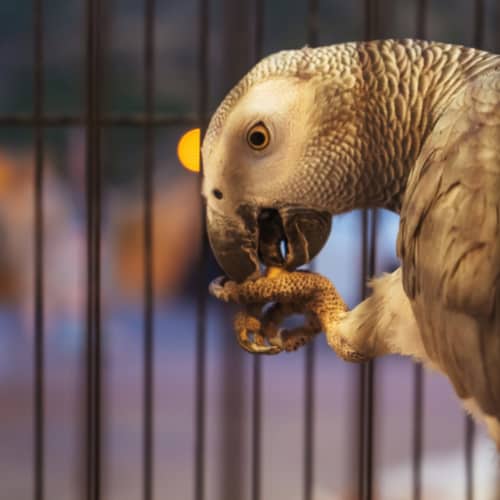
General Care Tips for African Grey Parrots
Here is a list of tips you should remember when caring for your adopted Grey, regardless of its gender (some were mentioned earlier):
- Provide a large cage with ample room to spread their wings. Add toys, perches, and puzzles to prevent boredom.
- Socialize with greys daily through talking, training, and outside-the-cage time. Interact gently and build trust.
- Feed a varied diet including pellets, fresh fruits/veggies, vitamins and supplements, and healthy grains. Avoid seed-only diets.
- Set up vet visits for regular checkups, nail trims, and disease screening. Seek help for any plucking.
- Find ways to stimulate their intelligent minds such as learning tricks or solving treat puzzles.
- Ensure plenty of uninterrupted sleep time, 10-12 hours in total darkness.
- Clean the cage and food/water dishes regularly to prevent disease spread. Replace soiled newspaper or substrate material.
- Look for signs of illness like lack of appetite, discharge, or sitting on the bottom of the cage. Seek help promptly if you notice any of those signs.
- Teach greys safety, such as not to chew wires or eat toxic houseplants. Also, you should childproof their environment.
Specific Care Tips for Male African Grey Parrots
Here are a few tips specific to male African Greys that you should consider (in addition to the general ones mentioned above):
- Be aware of potential aggressive territorial behavior during breeding season - provide extra supervision. Males are territorial creatures and may attack other pets or guests.
- Limit simulated daylight hours to reduce the hormonal impact that can trigger aggression.
- Consider having male grey neutered if aggression or territorial issues arise.
- Interact frequently with male greys to socialize them and reduce potential aggression.
Specific Care Tips for Female African Grey Parrots
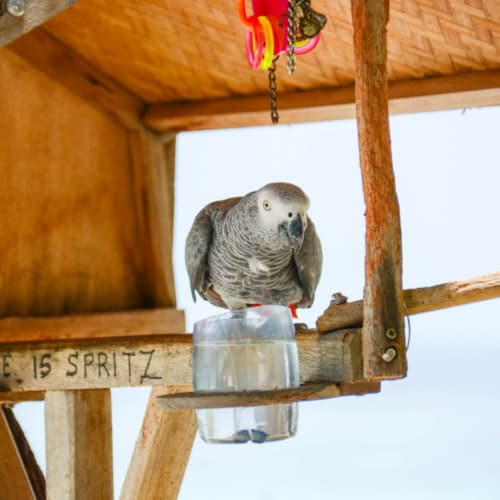
The following are tips to care for female African Grey parrots; most of these are related to (chronic) egg laying; keep them in mind along with the general ones:
- Monitor calcium levels carefully, especially when laying eggs. Provide calcium supplements if needed.
- Watch for signs of egg binding, like sitting fluffed up, and take the bird to an avian vet promptly.
- Consider having female greys spayed if chronic egg-laying becomes an issue.
- Separate male and female greys during breeding seasons to prevent excessive egg production.
- Allow females to keep an infertile clutch to sit on until they lose interest, to satisfy nesting instincts.
- Ensure an adequate cuttlebone or mineral block is available to supplement calcium.
- Provide extra protein when the female is laying eggs (provide cooked eggs or beans).
- Limit simulated daylight hours and rearrange the cage frequently to discourage chronic egg laying.
- Give extra affection and attention during times of hormonal changes to prevent behavior issues.
- Schedule well-bird exams 1-2 times per year to identify any nutritional or egg-related issues early.
With some extra considerations around eggs and hormones, female African greys can make very rewarding companions.
Final Thoughts
Ultimately, the decision between a male or female African Grey Parrot comes down to personal preference and lifestyle. Whether you prefer the larger, stronger male or the smaller, more delicate female, both genders require a dedicated owner who can provide the necessary care, stimulation, and regular health checks (with females requesting a lot of attention during the nesting season).
By understanding the unique traits and needs of each gender, you can make an informed decision and choose the African Grey Parrot that is the best fit for your home and lifestyle. Regardless of your choice, with the right care and attention, your African Grey Parrot can become a cherished member of your family for many years to come.
Thanks for reading!



